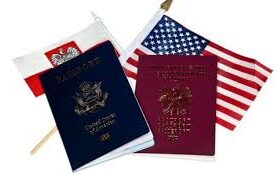Significant Fee Rise in Immigration Forms Affects Businesses and Immigrants

On July 31, 2020, the United States Citizenship and Immigration Services (USCIS) published a final rule with a significant rise in its fee schedule, affecting both individual immigrants and businesses. The new schedule has added new fees, establishing multiple fees for nonimmigrant worker petitions, and limiting the number of beneficiaries for certain forms. Additionally, the new rule removes certain fee exemptions, changes fee waiver requirements, and alters premium processing time limits. The new schedule is to take effect October 2, 2020. The USCIS has announced that it declines to make any changes to the rule following the comments period.
The USCIS has increased its fees by a weighted average of 20%. For the first time, the United States has joined the very few countries in the world that charge asylum applicants; there will now be a $50 fee for asylum applications. Certain forms such as Form I-129, Petition for Immigrant Worker; Form I-600/600A; Form I-765, Application for Employment Authorization; and Form I-912, Request for Fee Waiver are undergoing a change. The USCIS will post the new and revised forms 30 days before the fee change rule is to take effect. During a grace period of 60 days, both the previous and new versions of the same forms will be accepted if the new and current fees are paid along with the applications.
Fee Rise Effect on Businesses
The fees for immigrant worker visa petitions have been hiked. The filing fees for an L visa petition will increase by 75% from $460 to $805. The fee for the H-1B visa petition will rise by 21%, from $460 to $555. Further, the USCIS will impose much higher fees on employers who have more than 50 employees, and more than 50% of whose workforce is in H-1B and L-1 visa status.
The USCIS has reinterpreted the law that imposes an additional fee of $4,000 on initial H-1B petitions and $4,500 on initial L-1 petitions as is the current practice. However, the USCIS will impose this additional fee every time the employee’s status is extended.
Several other high skilled visa petitions such as the O visa (extraordinary ability/achievement) will rise by 53%, from $460 to $705. Similarly, fees will increase for petitions for the TN (NAFTA professionals), E (treaty traders and investors), P (athletes/entertainers), Q (cultural exchange), and R (religious workers) categories, as well as for H-3 visas for training. Form I-129, which is currently used by multiple work visa categories, will be changed and re-named for specific categories.
Premium Processing
Though the fee for premium processing is the same, the USCIS will now process the case within 15 business days instead of the current 15 calendar days. Employers, after having paid $1,440, will have to wait for four additional days to get their applications adjudicated.
Other Fees Increase
Applications for Employment Authorization have increased by 34% from $410 to $550. The highest fee hike is for the application to become a U.S. citizen, rising by more than 80% from $640 to $1160. However, aspiring U.S. citizen applicants will not have to pay the $85 biometric fee.
To learn more about this blog post or if you have any other immigration concerns, please feel free to contact me at rglahoud@norris-law.com or (484) 544-0022.



